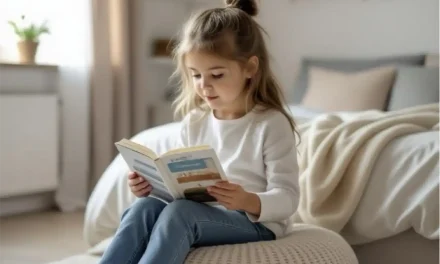
Integrating Philosophy into Daily Life: Sharing Reflections as a Family
A
fter a long day, kids often go quiet. A bad grade, a rough moment with a friend—it all gets buried. Without space to unpack it, the lessons are lost. In Paris’s cafés, thinkers shared their struggles and insights over wine and laughter, turning talk into strength. Their resilience didn’t come from hiding—it came from opening up. This subtopic is about spontaneous emotional reflection, not planned structure. Ask your family, “What helped us stay strong today?” That question invites reflection without pressure.
One quiet night, my daughter sat at dinner, eyes low, barely touching her food. I lit a candle and softly asked what had helped her through the day. She looked up and said a friend had stood by her when things got rough. Her voice steadied. We went around the table—my son mentioned a joke he’d told, I spoke about a breath between meetings. We laughed, we listened, and she smiled. That simple act became a habit. Over time, she faced school stress more calmly—not because it disappeared, but because she knew she wasn’t facing it alone.
Build these moments into your evenings, especially around meals. Ask what gave everyone strength that day—a good laugh, a helpful hand, a small step forward. For younger kids, focus on simple wins; for teens, leave space for deeper thought. Light a candle if it helps, or keep the moment quiet and unrushed. Praise what they share. Over time, these rituals do more than soothe—they create a family rhythm where openness becomes strength.
Integrating Philosophy into Daily Life

Integrating Philosophy into Daily Life: Reinforcing Purpose Through Rituals
Meaningful rituals give children stability and direction. Use small, shared routines to foster belonging and purpose.

Integrating Philosophy into Daily Life: Weaving Reason into Routines
Daily routines can teach clarity and thoughtful action. Encourage children to pause, reflect, and use reason in everyday decisions.
Table of contents

Primordial Soup for the Mind: Navigation
Navigate the book Primordial Soup for the Mind.
TIPS
- Create one weekly moment for shared reflection
- Ask what changed someone’s mind that day
- Celebrate emerging thoughts over polished ones
ACTIVITIES
- Memory Jar: Drop in reflections weekly; reread them monthly
- What I Unlearned: Ask each family member what belief they revised
- Micro-Talks: Each person shares a 1-minute insight after dinner
EXAMPLE
Our reflection jar revealed that my son thought volcanoes were magic until last month. He laughed—and so did we.

Download “Primordial Soup for the Mind: A Parent’s Guide to Nurturing Intellectual Growth”
Enter your information to get this article and hundreds more as part of the FREE book Primordial Soup for the Mind.
Share your thoughts with the Thought Academy community in the Comments section below.

Sharpen those skills!
Enter your information to get our FREE practice exercises so you can hone your critical thinking and reasoning skills!







0 Comments